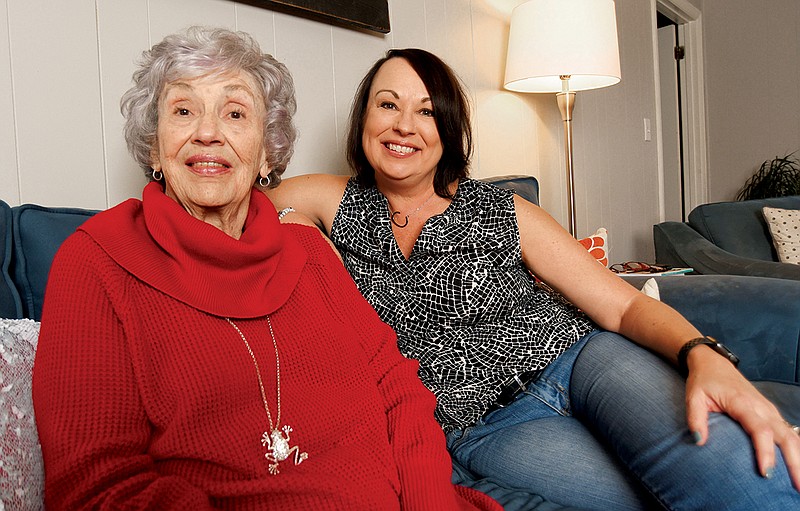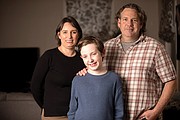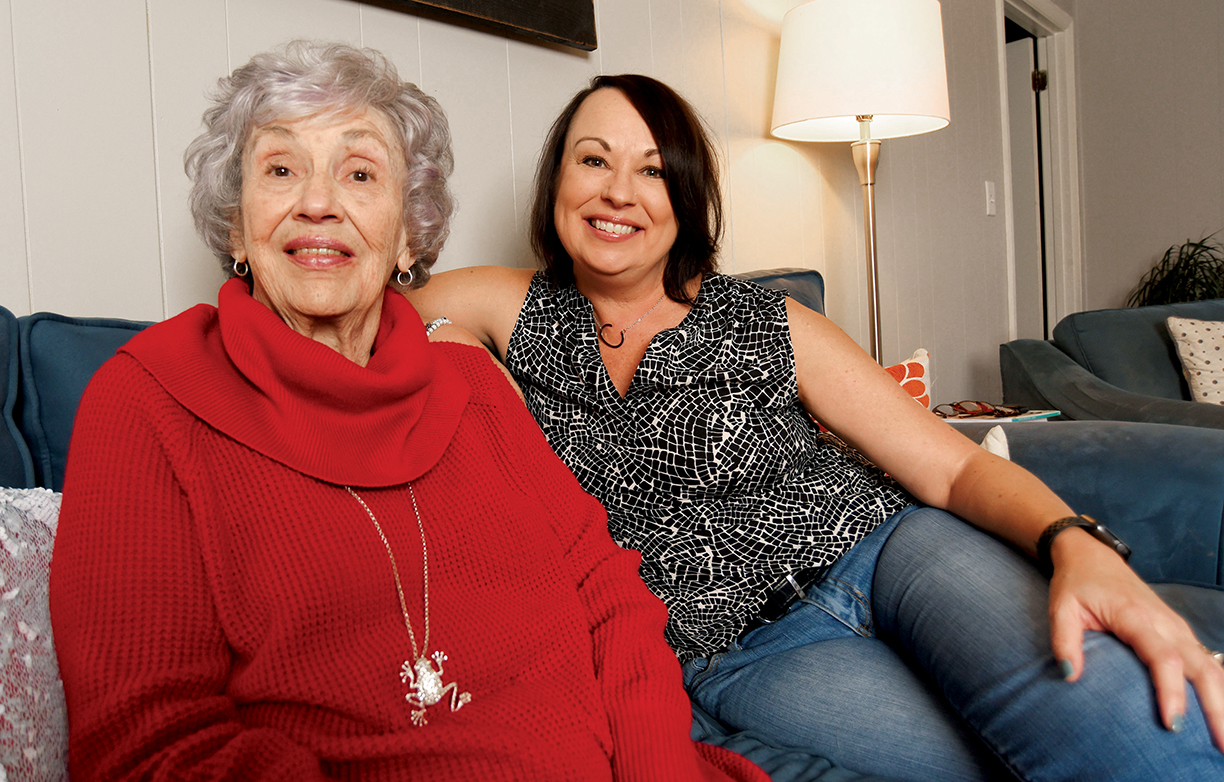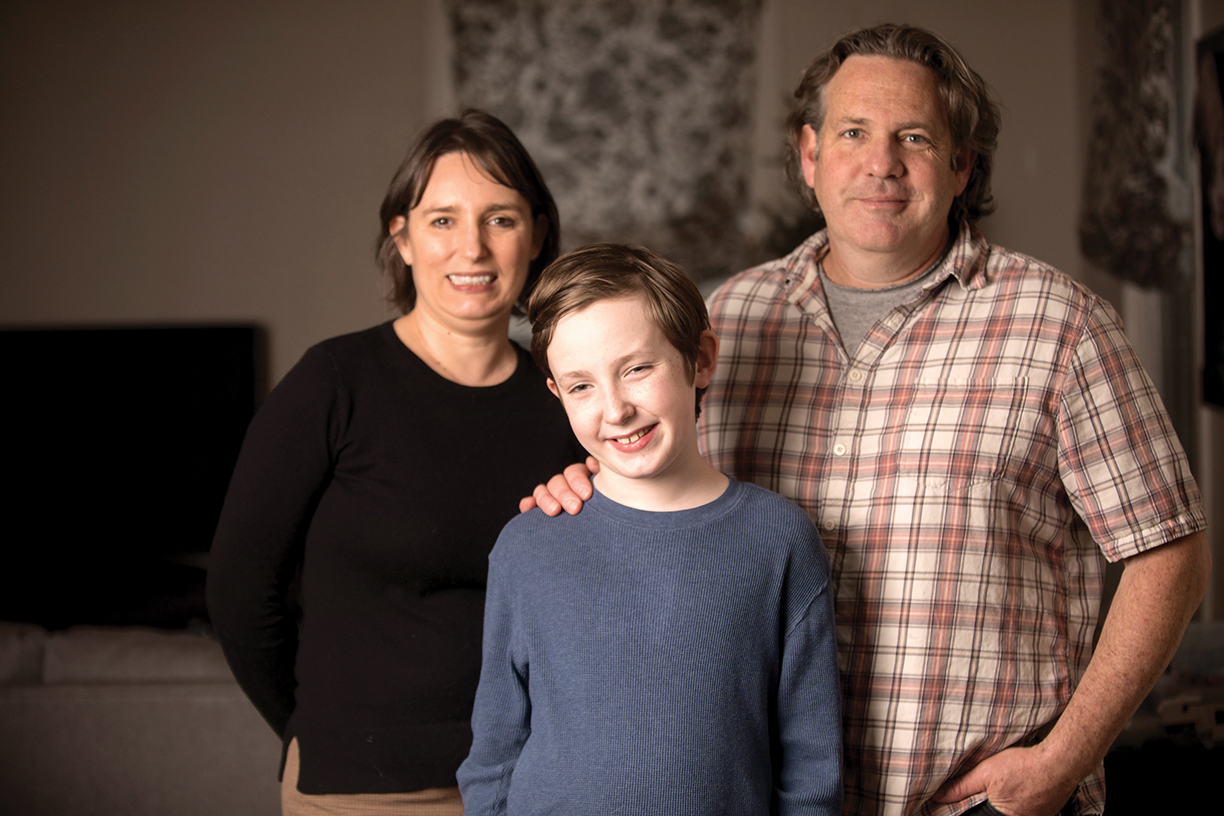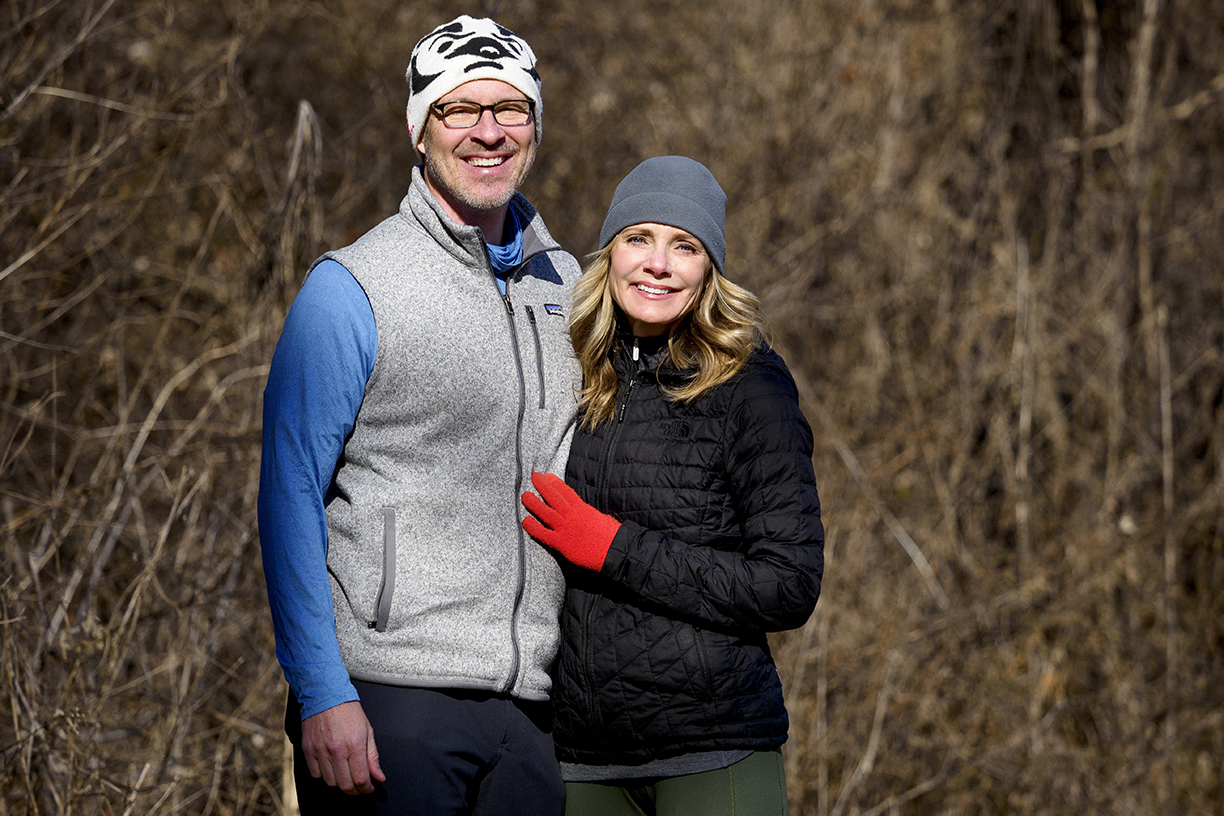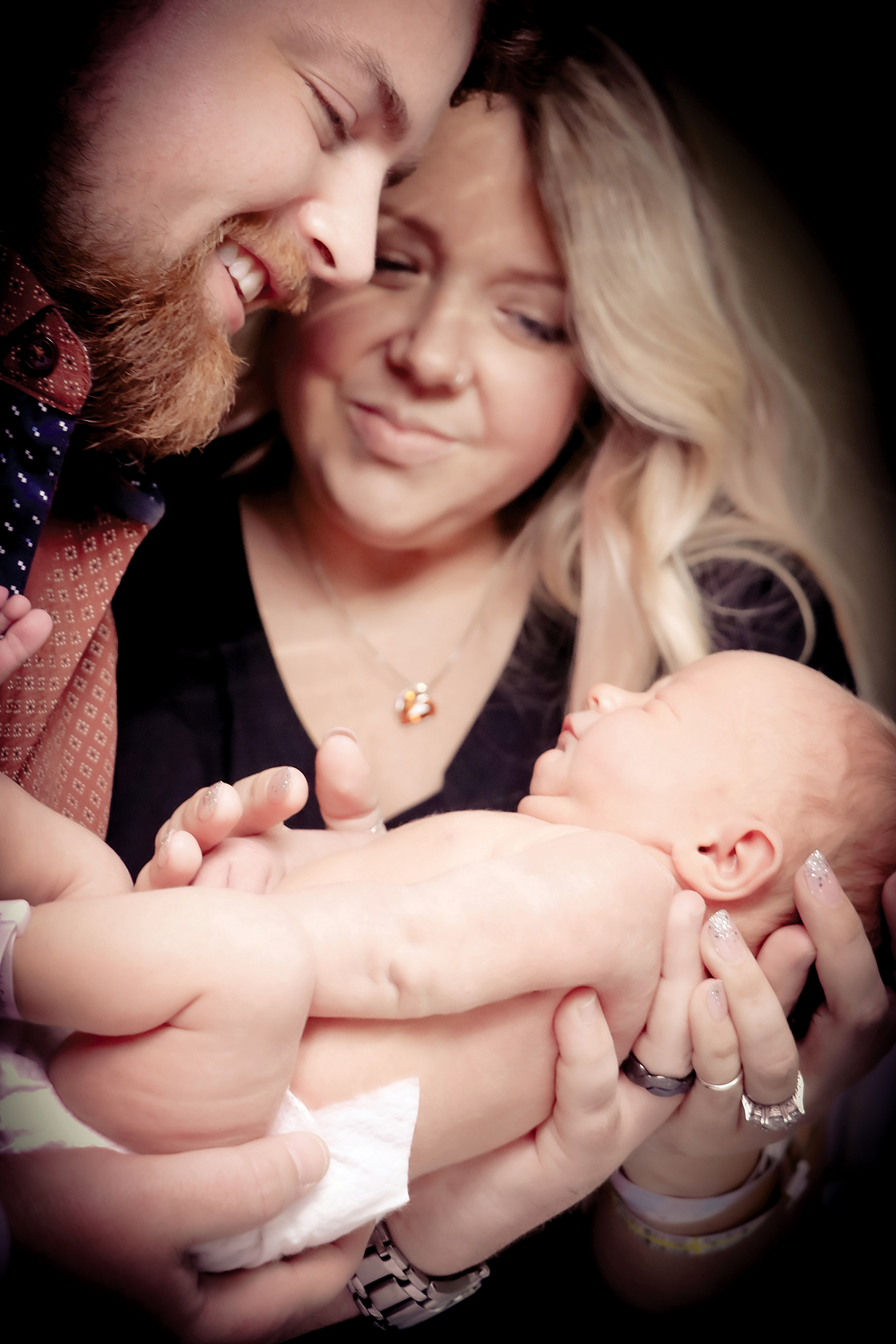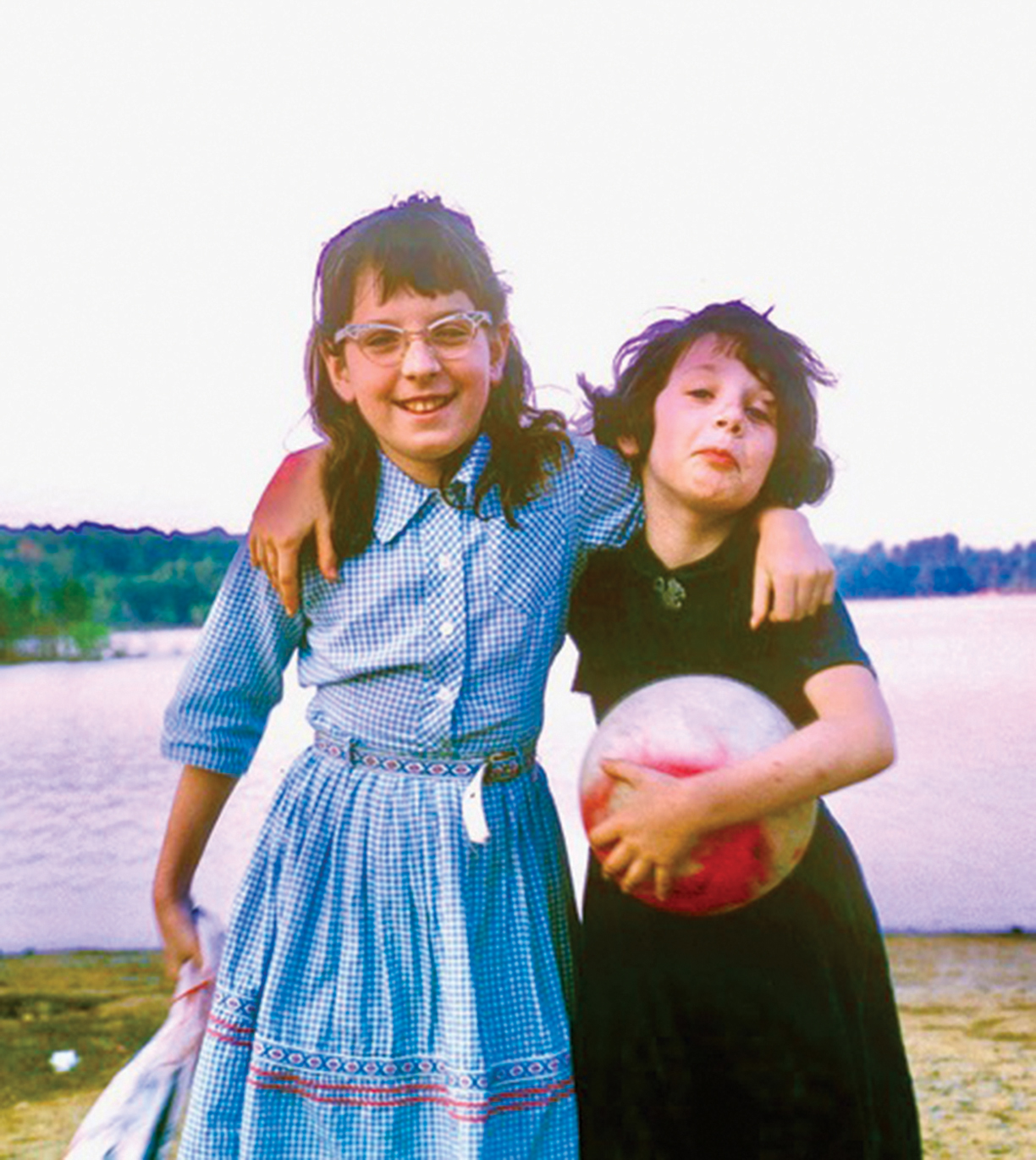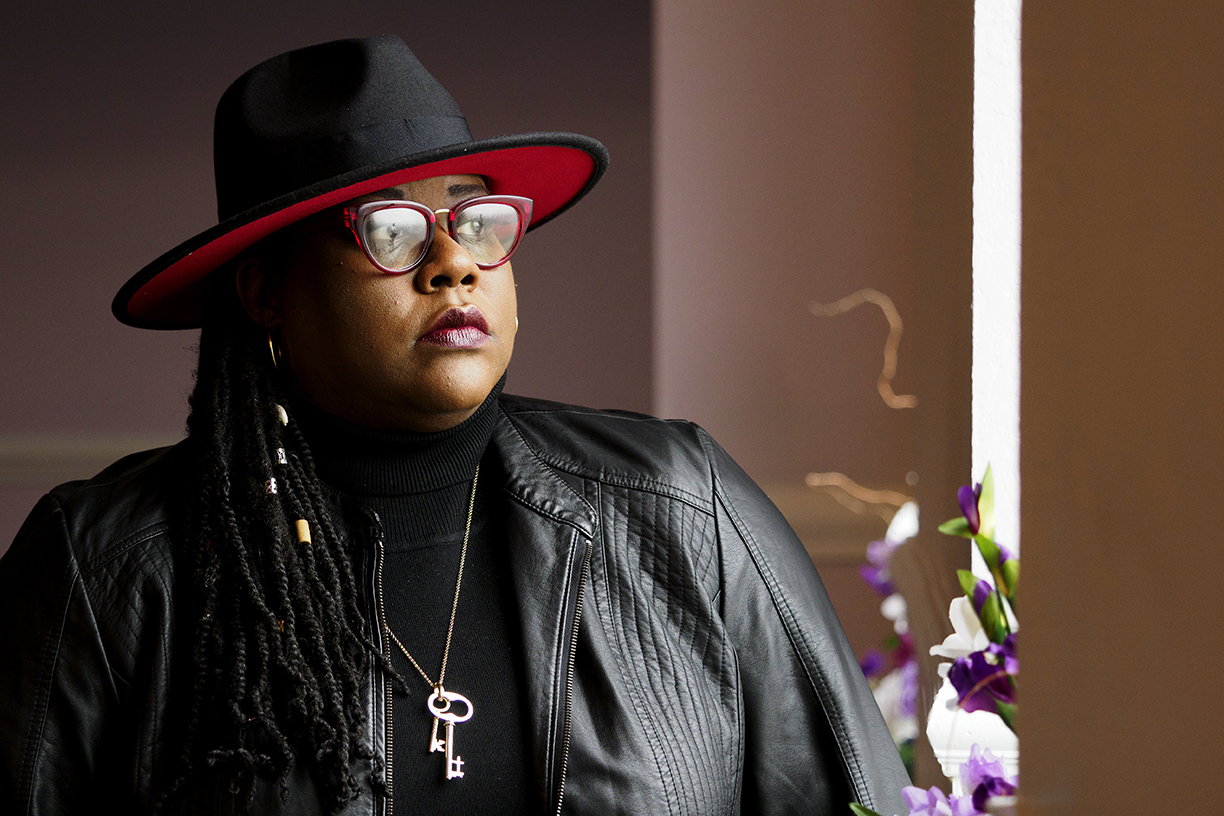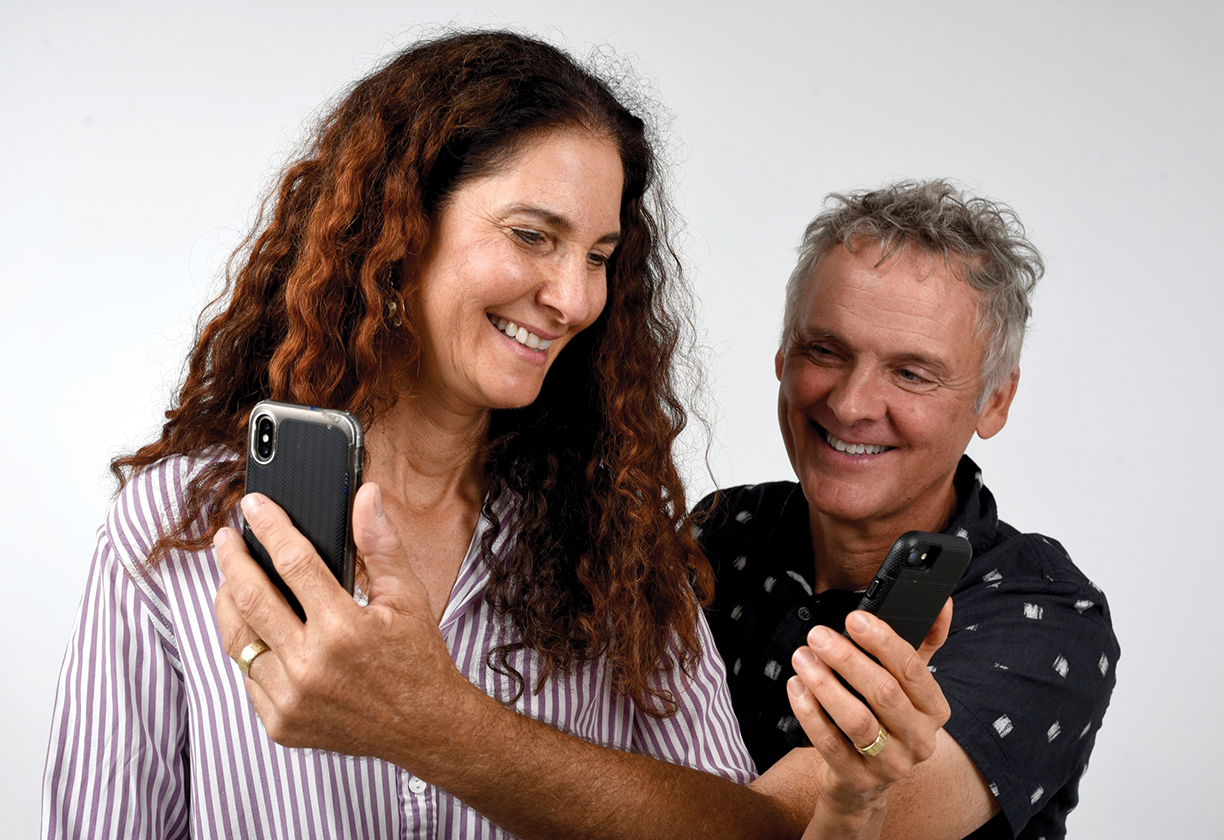I don't know about you and yours, but me and mine have been feeling a little stressed.
Not everything that happened last year was bad: My husband Daryl and I moved to a new house in a place that suits our souls. We adopted a second dog, a happy little 10-year-old poodle mix. I played a hefty amount of pickleball.
But during the same year, almost all of Daryl's art festivals were canceled, throwing our income into a nosedive. In mid-summer, his mother announced she would be moving to Chattanooga, which sent us scrambling to find her a place to live before we were settled in at our new home. And in November, I got laid off from my job.
All of this - the good, the challenging and the bad - played out against the backdrop of one of the worst pandemics to sweep the globe. I can't count the number of mornings I looked at my husband over coffee and the soft backs of sleeping dogs and told him how lucky I feel to be weathering these times with him.
Here at Chatter, we wondered how you and yours are faring against the backdrop of COVID-19. As half of a couple, as friends to friends, as children and caretakers of elderly parents, as siblings, what are you discovering about each other as you navigate the ordinary made extraordinary, and, for some of you facing daunting personal losses and illness, the extraordinary made historic? What can we learn about and from our relationships during this time?
Read on for a glimpse into the lives and takeaways of six Chattanoogans who have struggled and flourished during these novel and challenging times. Hear from two local psychotherapists about how we can better position ourselves to cope. And take with you from this historic moment the knowledge of what you do - and don't - wish to repeat. Because though we haven't been through something like this before, the prediction is that we will again.
***
When Carla Eischeid's mother was diagnosed with Parkinson's disease eight years ago at age 69, Carla, an only child, knew that she, her father and her husband of 24 years, Mike, would be her primary caregivers. She knew her mother's condition would worsen as the years went by, and that, as her father aged, she would take on more and more responsibility for both of them.
Caring for them full time wouldn't be easy, Carla and Mike knew. Aside from their own dogs and a few baby-sitting stints, they had never taken care of anyone. But they planned a number of activities over the course of 2020 that would break up the intensity of their new arrangement: They would go to San Diego for Carla's 50th birthday. Later in the year, they would take a trip to London, and after that, a trip to the beach.
Then the coronavirus hit. Not only did their planned trips fall off the calendar, the couple couldn't even go out for a nice dinner to decompress.
When Carla's mother broke her hip, she was admitted to the hospital, where she suffered the negative effects of lockdown common to those who are suddenly isolated and already confused: She developed sundowner syndrome. Her phone calls to Carla almost always came between the hours of 3 a.m. and 5 a.m. She was almost always crying.
"She thought she had been kidnapped and was being held in a giant warehouse," Carla says. She complained that her "captors" weren't feeding her.
The constant stress of wanting to help her mother - with COVID-19 precautions restricting her visits and making access to appropriate care much more difficult - took an additional toll on Carla and Mike. When her mother was finally able to come home, she required more intensive help with ordinary day-to-day tasks like showering, dressing and making meals.
Carla never questioned her decision to care for her mother. But, she admits, "I didn't handle it well. I was freaking exhausted. We ended up in marital counseling for the first time ever."
It was an immensely difficult time in Carla and Mike's life, the navigation of which ultimately made their marriage stronger. They took lots of walks together. They talked and argued. There were dramatic moments followed by apologies. In the end, says Carla, she has realized Mike is both kinder and more stubborn than she ever knew.
"We are making this work, but it is challenging every single day. We have to work a lot harder to make time for ourselves," she says. "I guess my biggest takeaway is that we are a great team. I never looked at us that way before."
It is fortunate, and a testament to the strength of their marriage, that Carla and Mike are adapting to their new reality. The Association for Retired Persons (AARP) has said the pandemic is both exacerbating existing problems for couples and creating new conflicts. As early as August of last year, Susan Myres, president of the American Academy of Matrimonial Lawyers, said in the Wall Street Journal that she expected divorce filings to increase between 10% and 25% as a result of the pandemic. Increased time together, forced togetherness, altered routines and the difficulty of managing children who may or may not be in school all play a part.
"COVID has been a test of relationships," says Lisa Harrison, a licensed professional counselor in Chattanooga who lost two uncles to the virus two weeks apart. Through her practice, she has seen up close both the toll and the gifts it has brought to bear on couples.
For those like Carla and Mike who are able to pull together to confront the challenges before them, the bonds of marriage are often strengthened, she says.
***
In early 2020, Kevin and Andrea Bate's 9-year-old son, Parker, began complaining of severe headaches. When his parents took him to the doctor, he was initially thought to be suffering from migraines, but medication wasn't helpful.
Several months went by. The headaches continued without explanation, followed by a few terrifying and also unexplained fainting episodes.
On the morning of April 4, after complaining of tiredness, Parker collapsed. An emergency CT scan revealed an avocado-sized brain tumor called a juvenile pilocytic astrocytoma. Drains were inserted to relieve the pressure on Parker's brain, and he was scheduled for surgery the next day.
Because of the coronavirus, waiting rooms were closed, so Kevin and Andrea were forced to wait in the hospital parking lot. They anxiously awaited hourly phone calls from the OR nurse about the progress of the surgery.
The last call was from the surgeon, saying that he was able to remove the entire tumor.
Since those terrifying months in early 2020, Parker has gradually re-found his footing. He lost his sight in his right eye, but, say his parents, this doesn't slow him down.
Life in general puts stress on relationships, as do significant life events, both positive and negative. But caring for an ill child produces a special kind of anxiety that can isolate couples who feel others can't possibly understand their pain. Research shows that illnesses in children are generally met with a united parental front, and that, as might be expected, this willingness to face problems head-on (as opposed to denial or avoidance) leads to better outcomes for everyone involved.
The Bates, who have been married 10 years, say that going through this experience with Parker did in fact bring them closer. There is a deeper respect and trust than there was before, they both say.
"I think developing a deeper trust was a gift," says Andrea. "When Parker was in the hospital, only one of us could be with him. I would have stayed with him the whole time, but I knew Kevin wanted to be there too, so we worked together to give each other time to be there. I definitely land on the introverted side of the spectrum, so the time I had at home gave me needed time to recharge and helped me be my best when I was with Parker."
If she hadn't been able to trust that Kevin was up to the challenge, or would let her know how Parker was doing, she says, it would have been even harder to take the time to care for herself.
"I think most of the time I'm the rudder providing direction/focus," Andrea says. "Kevin provides a lot of force and energy. But that oversimplifies us. We are a team. We apply our individual strengths toward our common goals. We work well together. And we actively try to grow and become better."
Says Kevin, "A health emergency provides perspective. We would have still had to navigate the challenges of figuring out work and school in a pandemic, but those things are easier knowing we are all safe and well."
***
It might seem counterintuitive that at a time when we were being encouraged to stay home and stay apart, dating was still going strong. But more and more people have been turning to dating apps and using video conferencing and other creative social means to connect. The data company Apptopia reports that the top 20 dating apps have gained 1.5 million daily active users over the past year, presumably because the usual means of meeting people - at bars and other social events - are, for the most part, not an option.
It was February of last year when Jessica Bandy accepted a date request through the Hinge app. Brian lives two and a half hours away in a suburb of Atlanta, a distance Jessica found daunting. But something he wrote in the dating app's "Getting to know you" exercise made her reconsider. The sentence began, "We'll get along if" to which Brian had responded, "you are well read, prefer to be outside, and get that I have four kids - one who is perfect and three who are boys."
"This cracked me up since I have four children, none of whom are perfect and all of whom are boys," Jessica says. Plus, she adds, "I love to read, love to hike, and I dig a good sense of humor, so I figured we were off to a pretty good start."
Their second date was in Chattanooga, at Stir. At that time, things were still pre-coronavirus. Restaurants were open, schools hadn't shut down, and businesses were still going strong.
Approximately six weeks later, restrictions on indoor dining and large gatherings went into effect. Jessica and Brian had begun meeting halfway between Chattanooga and Atlanta at Red Top Mountain every Sunday, where they would hike together, watch church online and have a picnic brunch.
"We had a lot of discussions on the trail," she says. They discussed their respective life and work situations, the distance between them, and the kids. "And it just kept bringing us both joy to be together," she says.
As time goes by, they check in with each other on a regular basis about how they are feeling: about the distance, each other and the progression of the relationship.
"The distance still remains our biggest challenge," says Jessica.
And, of course, managing their - and their kids' - exposure to COVID-19.
"Maintaining the rules and making sure we were not spreading our circle too wide was tough," Jessica says. "He had kids who were coming home from college and working at summer camps, and I had some playing sports too."
She adds, "Eight children tends to complicate things. I say often that having four kids requires a master's in logistics, so I guess managing the schedules of eight requires a PhD."
She and Brian sit down with their blank calendars every few months and attempt to coordinate their schedules as best they can. But while the pandemic has put restrictions on school, after-school, dating and travel activities, it has also played an undeniable role in the very viability of Jessica and Brian's relationship.
"No way it [the relationship] would have ever happened [if not for the pandemic]," she says. "Brian's twins who are sophomores both play college-level lacrosse, his next-down-oldest is a college-level gymnast, and his youngest is also a serious multi-sport athlete. So last spring when things began to get canceled, literally hundreds of practices and games and tournaments fell off the grid. Had it not been for this suddenly wide-open schedule for us both, I imagine we would have given up trying to get together.
"Instead, we were able to cram a year's worth of getting to know each other into three months of dating, catapulting our relationship forward at warp speed."
***
Nicole and Korey Henley found out they were expecting on March 8, 2020, just five days before Chattanooga announced its first confirmed case of COVID-19. By the time Lily Catherine arrived in November, the world was fully engulfed in the pandemic, with cases in Tennessee the highest per capita in the nation.
It was a frightening time to become a mom, says Nicole, whose upbeat personality and enthusiasm come through in the way she talks about her job teaching and the enjoyment she gets from being around large groups of people. Despite her love of community and communing, she made the decision to stay inside her home for the duration of her pregnancy, except for occasional walks around her yard.
"The isolation was very difficult," she says. But they were adamant and vigilant about keeping themselves and their unborn child safe.
Korey was responsible for all errand and grocery runs, after which he diligently cleaned and sanitized everything before bringing it inside, even going so far as to disinfect the bottom of his shoes, throw his clothes in the wash and take a shower.
In addition to affecting their lives as expectant parents, the pandemic also affected how Nicole and Korey's baby would be welcomed into the world.
"The biggest upset was who could be there for Lily's big day," says Nicole, who wanted her mother to be present for the birth, especially since Lily Catherine is her first grandchild. "But I could only choose one support person to have in the room. I would've literally had to kill Korey to keep him from missing the birth of his daughter."
After Lily Catherine was born and before they were released from the hospital, Nicole and Korey got a big surprise.
"All of the sudden we heard a knock on the window, and I cracked open a blind to find a motley crew of Korey's parents, sisters, aunts, uncles and cousins," she says.
It was a welcome, emotional and much-needed visit, especially considering that, once home, the couple did not permit any visitors.
"Not having our parents around as soon as we got home from the hospital was sad for us both," says Nicole. "Children are only that little once, and we weren't able to share that experience with anyone at first."
Even with all the precautions, newness of parenthood and unwelcome restrictions, Nicole says she feels she and Korey have had it easier than others have during this time. "This challenge has been a testament to the strong relationship that Korey and I have because we've been able to spend this much time together without wanting to lock each other out of the house!"
If you know someone who's expecting or who has had a baby recently, experts suggest that videoconferencing can help alleviate new parents' feelings of isolation. Thoughtful self-care gifts are always welcome, as are gift baskets (make sure to respect allergies and food preferences), Dinner Delivered certificates, and promissory notes for post-pandemic baby-sitting services and fun nights out for Mom (and/or Dad).
***
Linda Voychehovski and her sister Even Friedl had the opportunity to test their relationship when they both came down with COVID-19.
Linda is a local writer; Eve is a retired trial lawyer. Like most writers, Linda needs a lot of time alone. Like most trial lawyers, she says, her sister is a lot more extroverted. And, like most siblings, there are other differences as well.
"As we've gotten older, she's become more politically conservative while I'm still a true-blue liberal," says Linda. "If Eve drops her pillow on the floor, she'll change the pillowcase. I'll just dust it off. Eve does laundry every day; I do it once or twice a week. But we laugh at the same things, so we have fun together. We're open and honest. We've always trusted each other absolutely."
Until about 15 years ago, she says, there were the usual arguments and general bruised feelings, remnants of an old sibling rivalry. But by the time their parents got older and started needing their help, Linda and Eve had mostly put their differences behind them. "We had to cooperate with each other," Linda says.
This spirit of cooperation would prove critical last December. Eve was visiting from Florida while her condo was being renovated for two months. It was the longest the sisters had been together since they lived under their parents' roof. Things were going "surprisingly well" for such an extended visit, Linda says.
Then COVID-19 came to call.
Linda's husband, a pediatrician who tested negative, went to stay with their daughter, so it was Eve and Linda in the trenches together.
"We were so sick. We were laid flat for two weeks," says Linda. "Bed to couch, couch to bed. That was about it."
Over the weeks of shared illness, Linda discovered a side to her sister - and their relationship - that she hadn't seen before.
"I learned that Eve is a very attentive nurse. She was sicker the first week, so I was able to do more for her. When I took a nosedive the second week, she was feeling a bit better so she took care of me. She kept me supplied with smoothies and got very bossy if she thought I was trying to do much."
Jonathan Caspi, professor of family science and human development at Montclair State University, cites research that shows that sibling relationships "are a central factor in creating positive outcomes in all aspects of everyday life" and that siblings are " the most powerful factor in well-being" for older adults. He says the kind of good-natured banter that often happens between siblings " can make all the difference during the coronavirus pandemic and other crises."
In the end, Linda says that fighting the virus with her sister brought them closer together.
"If there's a silver lining to getting infected with a potentially deadly virus, this is it," she says.
***
Lakweshia Ewing lives with her husband and two half-brothers. She is a community/organizational consultant who, like the rest of us, has had to learn to navigate the parameters of a pandemic that ravaged her plans for 2020.
"Last year I began an international tour of portions of the transatlantic slave trade routes (visiting England, Nigeria, Ghana, Dominican Republic and Brazil). I have completely cut out all my future international research travels for at least the next year," she says.
Even as she feels blessed to be healthy and able to continue her work in other ways, she cannot deny that the year's losses have taken a toll.
Between March and November, Ewing said goodbye to 55 friends and family members. While not all of those deaths were COVID-19-related, the majority of them were.
"The last two deaths impacted me the most, as I said goodbye to one of my best friends of 25 years and five days later had to eulogize my uncle," Ewing says. "I can't say that I was equipped to handle what ended up being an emotional avalanche. I am a woman of faith and that was my primary method of facing this season of grief."
The Centers for Disease Control and Prevention reports that the contraction, hospitalization and death rates for people of color from COVID-19 is markedly higher than for white people, with Black and Latino patients suffering the highest casualties. From May 1-Aug. 31, 2020, the CDC shows that 114,411 people died from COVID-19 in the U.S. Overall, 51.3% were white, 24.2% were Hispanic or Latino and 18.7% were Black. More than 45% of those deaths occurred in the South. Meanwhile, Black people account for 12.5% of the U.S. population and 18.5% are Hispanic or Latino.
Facing a mountain of loss, Ewing found comfort in "prayer and study of God's word coupled with a lot of time with my husband and other family members."
But she also did something local professional counselor Lisa Harrison advises her clients to do: take time to be mindful.
"I took a lot of time to write, take long drives and just sit still with lots of hot tea," says Ewing. "I learned several years ago that even moments of stillness are moments of productivity if being still was the intended goal."
Above all, she says, the pandemic has taught her that relationships should be our first priority.
"I have always valued my relationships, but would often put projects or professional efforts ahead of them at times," Ewing admits. "This pandemic has taught me to love my people."
What used to be quick text messages or emails have morphed into more video calls or actual calls so that she can see and hear those whom she loves.
"I am more sensitive to the idea of loving people while I can, because tomorrow is not promised to anyone," Ewing says.
And she has advice for others:
"Take time to enjoy the simple things again. I've chosen to listen to my old LP records versus my latest digital music playlist. I've chosen to sit still and do nothing versus trying to find some activity to fill my moments of rest. I've learned to take a moment every day to not just think about something or someone that I am grateful for, but I take the time to show my gratitude.
"I would advise people to not be more focused on productivity than people, revenue than relationships. I would urge them to unlearn the need to check the marks of societal standards and status and be brave enough to write their own rules for the healthy level of normalcy that works for their lives. Everything that you can do is not what you should do."
***
As I mentioned in the opening of this article, I was laid off from my job in November. I am far from alone. Roughly 22 million jobs in the U.S. were lost by the spring of 2020, when the pandemic was just ramping up. Moody's Analytics estimates those 22 million jobs won't come back until early 2024. And about a third of all adults have had to reduce their hours or take a pay cut due to the economic fallout from the pandemic. My layoff from my job as communications director at the Jewish Federation of Greater Chattanooga came just a few months after 4,000-plus nonprofits from all 50 states were forced to call upon Congress to provide more support to their agencies.
Knowing I was not alone did not help buffer the anxiety my husband and I felt about the layoff.
That said, we've seen each other through a lot of job changes. We both left stable mental health careers in our 30s. He opened an internet bookstore and I went on the art fair circuit with my fledgling pottery. In my 40s, I stopped doing art festivals to finish writing a book and find a publisher. By then, Daryl had found his footing on the art festival circuit and was doing well. Once my book found a home, I ramped up my freelance writing work and took the job at the Federation.
Our career tracks have been a financial and emotional roller-coaster with both windfalls and setbacks. But it's a lifestyle we love, and we wouldn't trade it for all the stability in the world.
Still, we couldn't have done it had we not agreed that the challenges - the worrisome dips in income, the seemingly endless and often exhausting travel to shows, the repeated rejection that is part and parcel of any career in the arts - were ones we could and would weather together. And when those challenges exposed emotional vulnerabilities in our everyday lives, we knew not to turn away. When we were most pained by our struggles, we turned them into art, which helped us see them anew and create solutions. We grew stronger, separately and together.
"COVID has had much to teach us," says Harrison. And while we didn't ask for these lessons - "No one cares about gaining wisdom when they are in it," she says. "No one thinks the loss is worth it as we sit together through the surrendering process." - here we are.
"There are no answers but a living into and through to the new, the next," Harrison says.
Navigating Stress in Relationships
Like Lisa Harrison, LPC, Dr. William Hillner, PhD, has seen firsthand how the pandemic has been a test of relationships. Over the last year, he has seen a number of couples unable to navigate the riptides.In general, he says, couples that had weak relationships going into the pandemic became weaker, while couples with strong relationships pulled together.The two offer the following thoughts on how to keep relationships of all kinds healthy.* Address conflict head-on; don’t try to avoid or deny it through work, substance abuse, gaming, affairs or over-indulgence in food, shopping, internet usage, etc.* Don’t address issues in the midst of a conflict or fight. Wait until you’ve both calmed down from the high stress of the moment before attempting to talk things out.* Schedule dialogue sessions apart from other activities, so you and your partner can truly focus on what’s being said.* Practice self-care and encourage your partner to practice self-care. This can be scheduling time alone to recharge, practicing good eating habits, going out for a walk or connecting with a friend.* Make a conscious effort to spend quality time with your partner doing an activity that brings the two of you together. Watching Netflix together is fine, but try to also do something that engages the two of you together without distraction. “Don’t mistake being together 24/7 for engagement,” Hillner says.* Acknowledge and respect your partner’s, friends’ and family members’ stresses and strengths.* Periodically reassess the division of labor in your home. People change, as do situations. What worked before the pandemic or early into it may not be working now. Sometimes, simple adjustments can help.* Communicate without criticism.* Practice mindfulness.* Take care of those around you as best you can.* Find safe ways to connect with friends, family and community.* Try surrendering to the moment without trying to control or deny it.* Hold the space for others around you who are struggling, without trying to “fix” them.
